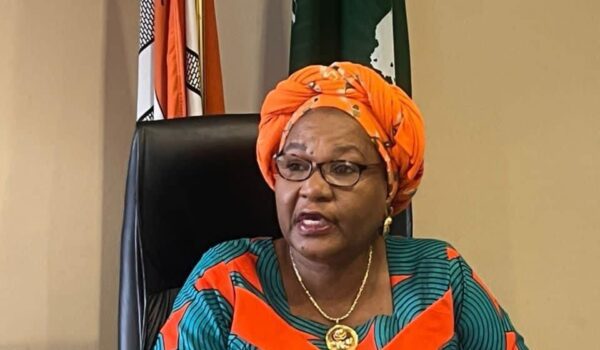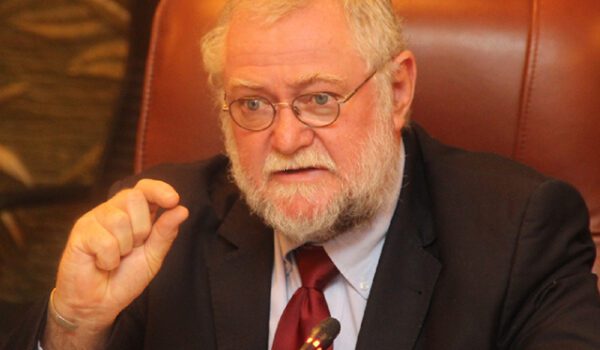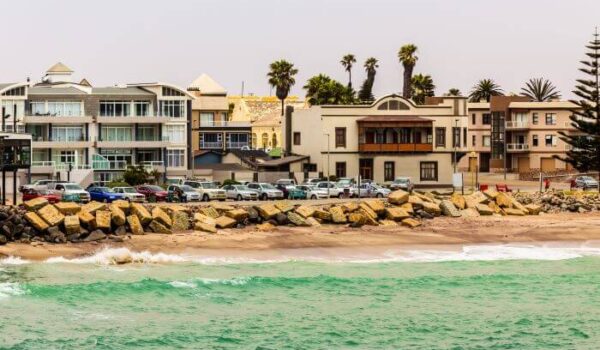
By: Justicia Shipena
NAMIBIA’S stance in the conflict between Palestine and Israel is unlikely to have any significant impact on its relationship with the United States of America (USA), according to international relations scholar Marius Kudumo.
Following the recent escalation of tensions between Israel and Palestine, the US announced increased support for Israel, including air defence capabilities and weapons.
In contrast, Namibia has taken a firm stance, calling on Israel to halt its attacks on the Palestinian people.
Questions have arisen regarding how Namibia’s position might be perceived on the international stage.
Marius Kudumo believes that this will not affect Namibia’s relationship with the United States.
He emphasised the complexity of international relations, suggesting that it is essential to understand the motivations behind countries’ actions rather than just their statements.
“I don’t believe it will have any impact on Namibia’s relationship with the United States. That is how countries act in international relations. We must not only look at what they are saying, but we must also try to figure out why they are doing what they are doing,” Kudumo stated.
Kudumo suggests that if the leaders of the two nations were to meet, they would likely continue their diplomatic relations as usual, without delving into the specifics of their stances on the Israel-Palestine conflict.
The recent conflict saw the Palestinian militant group Hamas launching an offensive on Israel, resulting in casualties and kidnappings.
According to the United Nations, over 6,400 Palestinians and 300 Israelis have been killed in the continuing war since 2008, not including recent fatalities.
Kudumo believes that Namibia’s position on the conflict is based on principles of international peace, security, and conflict resolution.
“States are supposed to explain or state their position on the basis of what they believe in or what their domestic policy says about international peace and security as well as conflict resolution,” he said.
However, he acknowledges that condemnation alone may not lead to a resolution in this complex conflict “because Israel is doing whatever it pleases”.
Whether it is justifiable or not, they know that powerful nations are backing them, he added.
He further highlights the issue of impunity in international affairs, where powerful nations may act without facing consequences, while the weak suffer the consequences.
In 2008, 2012, 2014, and 2021, Israel waged four prolonged military offensives against Gaza. Tens of thousands of Palestinian houses, schools, and office buildings have been demolished, along with thousands of Palestinians who were slain, many of them children.
Israel killed more than 2,100 Palestinians in 2014, including 1,462 civilians and over 500 children, over the course of 50 days.
The Namibian government on Monday expressed its concerns and condemnation of the ongoing hostilities between Israel and Palestine, urging Israel to observe international humanitarian law and stop attacking the Palestinian people.
Namibia also reiterated its support for a two-state solution with East Jerusalem as the capital of Palestine, in accordance with relevant UN resolutions.
“Namibia has further reaffirmed its strong support for the legitimate struggle of the Palestinian people for the inalienable right to self-determination and the establishment of an independent, viable and contiguous State with East Jerusalem as its capital, in accordance with the relevant UN resolutions,” said Penda Naanda, the executive director in the Ministry of International Relations and Cooperations.
Namibia called upon the international community to support a cessation of hostilities, the protection of civilians, and the implementation of relevant UN resolutions and agreements for lasting peace in the Middle East.
WAR IS NOT UNEXPECTED
Namibia’s support for the Palestinian cause is not new.
President Hage Geingob previously expressed solidarity for the Palestinian people during the UN General Assembly.
Geingob also welcomed the General Assembly’s decision to seek an advisory opinion from the International Court of Justice regarding Israel’s violations of the Palestinian people’s right to self-determination.
“Namibia is therefore pleased with the decision of the General Assembly to submit to the International Court of Justice, a request for an advisory opinion on the legal consequences arising from the ongoing violation by Israel of the right of the Palestinian people to self-determination,” he said.
Political expert Ndumba Kamwanyah emphasised that the Israel-Palestine conflict is deeply rooted in both the beliefs of the parties involved and global politics.
He highlighted the unfortunate suffering of civilians, particularly women and children, in conflicts of this nature.
Kamwanyah suggested that the recent hostilities were anticipated, as Israel has a history of military actions in the region, and Hamas may have planned its actions accordingly.
“This is revenge, which the Hamas have been planning,” he went on to say.
Popular Democratic Movement (PDM) leader McHenry Venaani, expressed deep concern about the escalation of violence between the two countries.
“The escalation of violence and warfare in the region is deeply distressing and worrisome. I firmly believe that the path to lasting peace and stability can never be forged through further conflict and military actions,” he said.
He urged the United Nations, Palestine, and Israel to work towards a two-state solution, as outlined in UN resolution 194.
Economist Josef Sheehama warned that the conflict might disrupt Namibia’s commercial ties with Israel, impacting the global economic mood and potentially leading to a decline in foreign direct investment and devaluation of the Namibian Dollar.
According to United Nations COMTRADE statistics, Namibia had substantial trade with both Israel – with exports valued at US$59.82 million and imports at US$3.8 million in 2022.
Sheehama also noted significant Israeli investments in Namibia’s diamond sector in the past, highlighting the importance of avoiding war for economic stability.
“It should be mentioned that in 2004, there were Israeli corporations that made significant investments in Namibia’s diamond sector. The Namibian government granted The LLD Diamonds 36 concessions worth US$ 180 million so that it could make investments in Namibia’s diamond sector,” he added.
According to Sheehama, LLD Diamonds ran the biggest diamond cutting facility in Africa as of 2005.
“Therefore, war should be avoided at all costs due to the loss of life, destruction of infrastructure, economic impact, escalation of violence, social and psychological consequences, environmental impact, and threats to global stability and security,” he stated.
Since the conflict started on Saturday, at least 1,100 people have been killed.









Comments